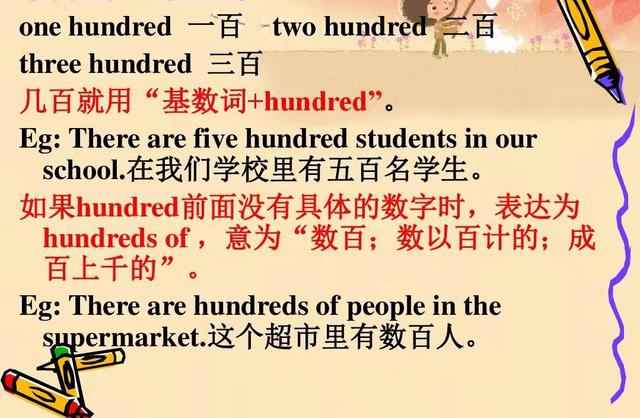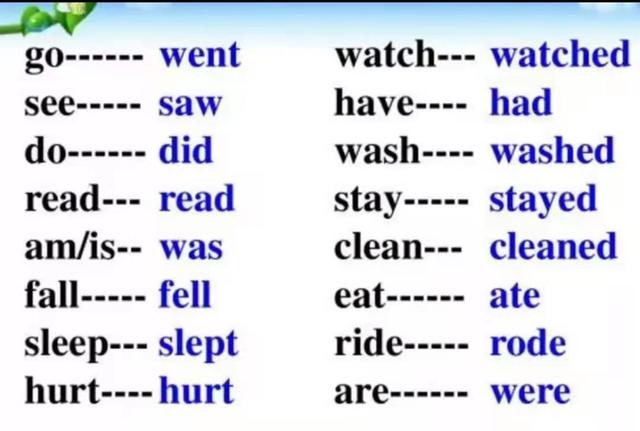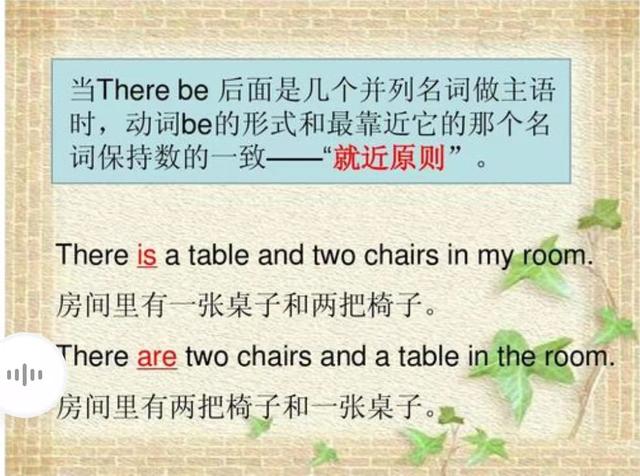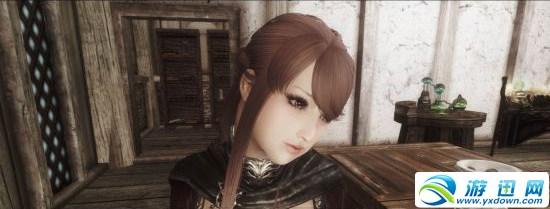Unit 69-70
一:单词
year this year
next year
last year
ten years ago
race car race 汽车比赛
in the race强调在比赛中
at the race强调在赛场上,并不一定在比赛
town near our town
crowd in the crowd
a crowd of一群(一堆;一伙)
a crowd of students 一群学生
a crowd of cattle 一群牛
stand stand on the left
exciting The race is very exciting
it’s an exciting race.
finish It was an exciting finish
The finish was very exciting .
excited I am very excited .
excited 和exciting 的区别exciting是主动用法,表示某物让sb很兴奋,令人兴奋的。
I like the exciting car race
我喜欢令人兴奋的汽车比赛。
excited是被动用法,表示sb因为sth而兴奋。
Sara was very excited about the car race。
莎拉看到摇滚乐团很兴奋。
winner The winner was YaoYao .
behind five other cars were just behind him.
way on the way home
on my way home
on my way to school
on the way to school
on my way to work
on the way to work
on the way to Japan
on the way to the station. 去火车站的路上。
on the way to the hospital在送往医院途中
二 短语hundreds of

hundreds of用来表示含糊的数目
hundreds of books成百本书
hundreds of students 数百名学生。
表示准确数目时hundred不加s。
two hundred trees 两百棵树
four hundred students 四百名学生
Three hundred and sixty five days 365 天
thousands of
thousand意为“千”,前面要用具体数字,表示准确数目时thousand不加s。
即数字 thousand 名词复数
There are two thousand students in the school. 这所学校有两千学生
thousands of后面加名词复数,表示“ 数千……”,前面不能加具体数字
Thousands of students are in the school.(学校里有成千上万的学生)
三:过去时

肯定句: 主语+动词的过去式+其他
She ate three apples yesterday.昨天她吃了三个苹果.
否定句: 主语+did not+动词原型+其他
She did not eat three apples yesterday.昨天她没吃三个苹果.
疑问句: Did+主语+动词原型+其他
Did she eat three apples yesterday?昨天她吃了三个苹果吗?
四:动词过去式变化规则规则动词的过去式变化如下:1、一般情况下,动词词尾加 -ed ,如:work ---worked
play---played
wanted----wanted
act----acted2、以不发音的 -e 结尾动词,动词词尾加 -d,如:live---lived
move----moved
taste---tasted
hope---hoped3、以辅音字母 y结尾的动词,把-y变为-i 再加-ed,如:study---studied
copy---copied
cry---cried
carry---carried4、以一个辅音字母结尾的重读闭音节动词,双写词尾辅音字母,再加 -ed,如:stop ---stopped
五:不规则动词的过去式变化规律性不强,须多加记忆。不规则动词的过去式的构成1.把动词原形中的i改为a,变成过去式。如:begin—began
drink—drank
give—gave
sing—sang
sit—sat
swim—swam2.把重读开音节中的i改为o,变成过去式。如:drive—drove
write—wrote3.改动词原形中的aw /ow为ew,变成过去式。如:draw—drew
know—knew
show除外,show—showed4.动词原形中的e改为o,变成过去式。如:get—got
forget—forgot5.动词原形中的ee改为e,变成过去式。如:meet—met6.动词原形中的eep改为ept,变成过去式。如:keep—kept
sleep—slept
sweep—swept7.动词原形中的eak改为oke,变成过去式。如:break—broke
speak—spoke8.动词原形中的ell改为old,变成过去式。如:sell—sold
tell—told9.动词原形中的an改为oo,变成过去式。如:stand—stood
10.以ought和aught结尾,且读音是〔 :t〕的过去式。如:bring—brought
buy— bought
think—thought
catch—caught
teach—taught11.把动词原形中的o改为a,变成过去式。如:come—came
become—became12.在动词原形后加d或t变成过去式,并且发生音变。如:hear— heard
say—said
13.动词的过去式与动词原形一样。如:let—let
must—must
put—put
read—read14.不符合上述规律的动词过去式。如:am,is—was
are—were
build—built
do—did
eat—ate
fly—flew
go—went have
has— had
leave—left
make—made
run—ran
see—saw
take—took
六:there be 过去式 句型

肯定句
There was an apple on the table the day before.There were several cars here a moment ago.
否定句
There weren’t many oranges in the box yesterdayThere weren’t two girls here not long ago.
疑问句
Were there a crowd of students here just now?
,




